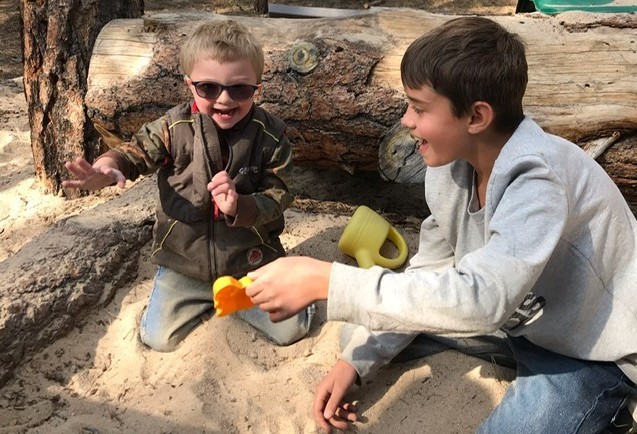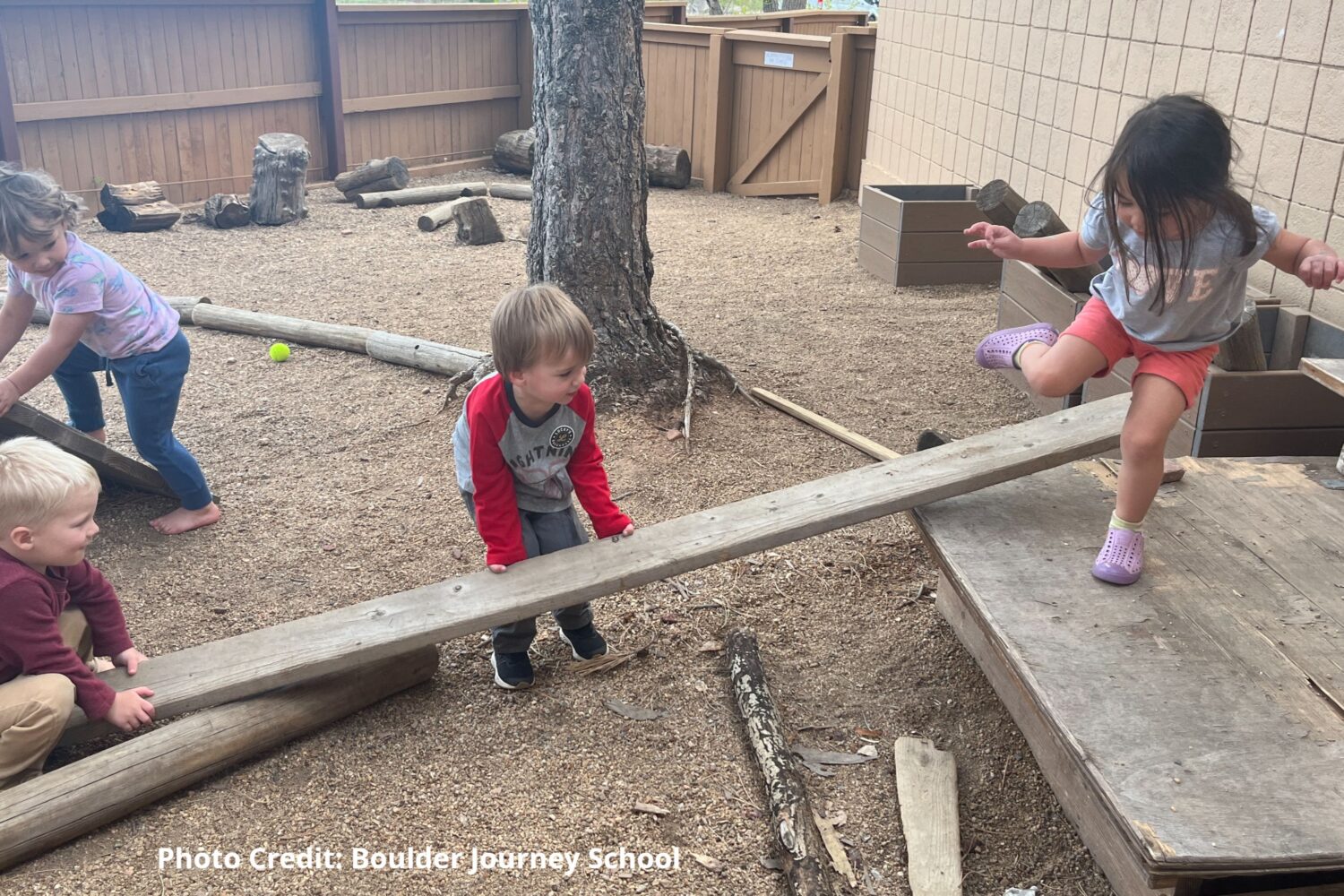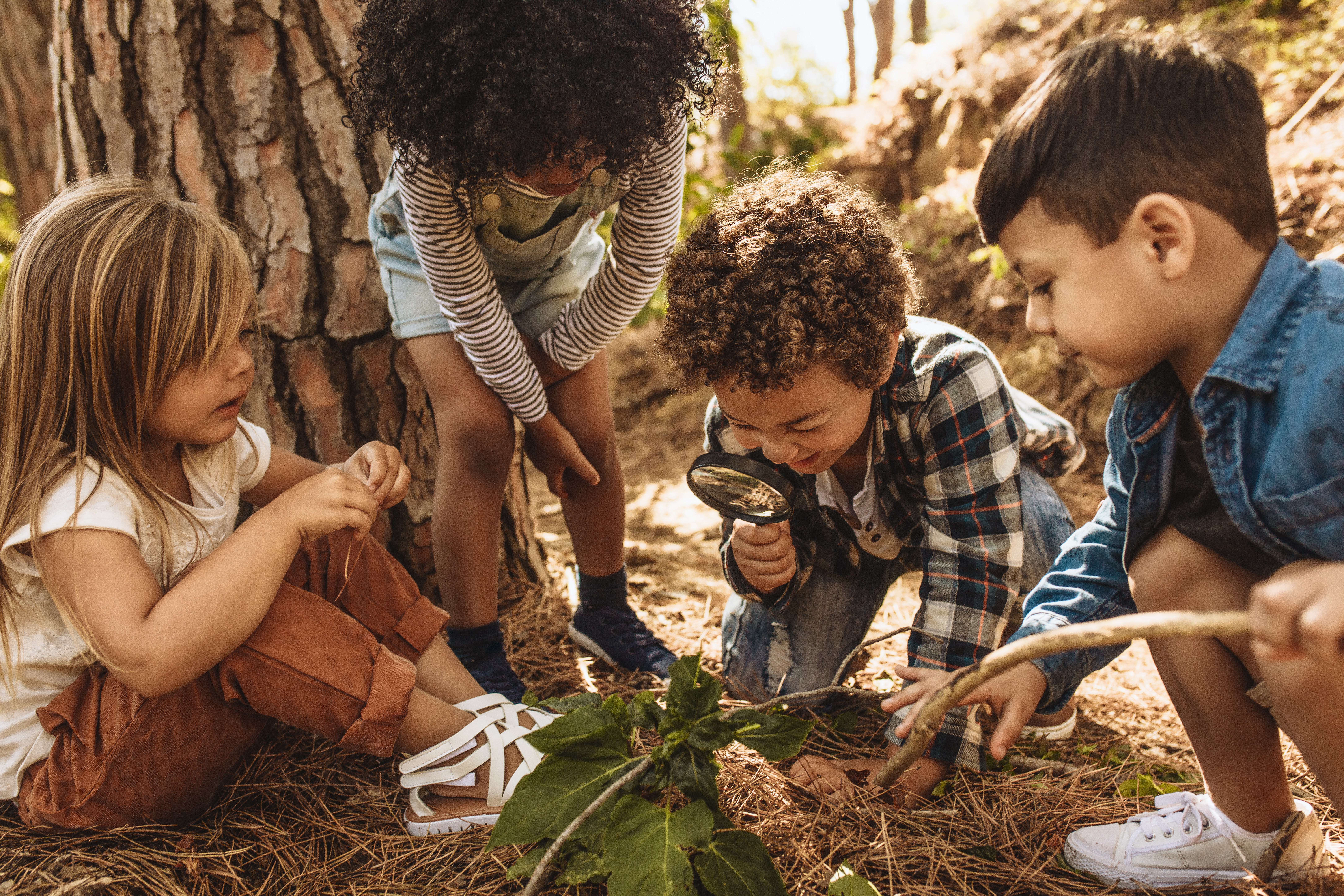Spring brings longer days, warmer weather, and the chance to enrich young children’s education through outdoor play and learning. Time spent in outdoor learning spaces supports a child’s physical, social-emotional, and mental development.
Research shows that young children with access to outdoor learning spaces are more physically active. They also engage with each other and adults more often. Outdoor play and learning can improve learning in school, mood, communication, coping skills, and more.
“[Outdoor learning] is important for young children because it cultivates enjoyment and understanding about nature and the world around us. Students get excited to garden and learn outdoors. It is healthy for them to be outdoors more, and…it makes a difference in their behaviors.” – Family Child Care Home Provider
The Early Childhood Health Outdoors (ECHO) program, run by the National Wildlife Federation, and the AdventureMe Therapeutic Forest School are ensuring that young children in Colorado have access to outdoor learning spaces. Their work is funded by the Colorado Department of Early Childhood (CDEC) through the Community Innovation and Resilience for Care and Learning Equity (CIRCLE) Grant. In partnership with CDEC, Early Milestones is the lead agency for the grants.
ECHO “Brings Nature and Outdoor Play to Every Child, Every Day”
ECHO helps child care providers create engaging nature-based and outdoor play environments. They do so through curated resources, professional development, and an innovative curriculum. Their approach allows providers to maximize outdoor learning spaces. It also ensures outdoor play and learning are more accessible to the young children being cared for in both centers and family child care homes (FCCH).
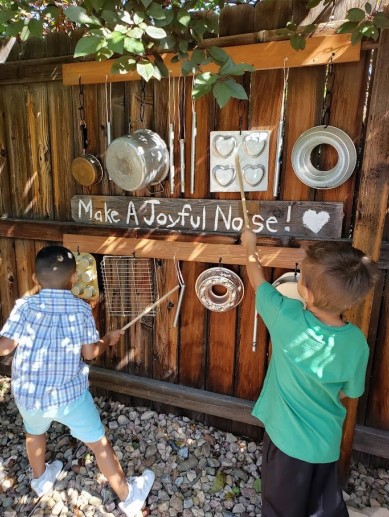
Through CIRCLE, ECHO assisted two cohorts of FCCH providers with their outdoor learning projects. Providers who work with ECHO receive cost-effective guidance on:
- landscape design,
- use of loose parts play materials, such as flowers, sand, and cups,
- music,
- gardening,
- outdoor sensory play, and
- connecting indoor and outdoor learning activities.
ECHO also facilitates connections between FCCH providers and those participating in their program. Their learning model places providers in a cohort and reduces feelings of isolation. It also creates chances for providers to build relationships, share ideas, and support each other. Select child care programs receive additional support to become demonstration sites. At these sites, staff share stories and lead tours of their outdoor learning spaces to inspire and support other providers.
“I enjoyed learning about the other family child care homes in our cohort. With the vast differences in Colorado, it was interesting to see how others make their spaces work. I also enjoyed learning how to enhance the outdoor learning areas.” – Family Child Care Home Provider
Learn more about ECHO’s work and access multiple resources (available in English and Spanish) on their website.
AdventureMe Therapeutic Forest School Supports Disabled Children Through Outdoor Experiences
AdventureMe is a place-based classroom and the only internationally approved Therapeutic Forest School in the United States. They instruct children ages three to five in Black Forest, Colorado. They partner with occupational therapists and speech language pathologists to support young children with autism, sensory processing disorders, and other conditions requiring interventions such as Individualized Education Plans, or IEPs.
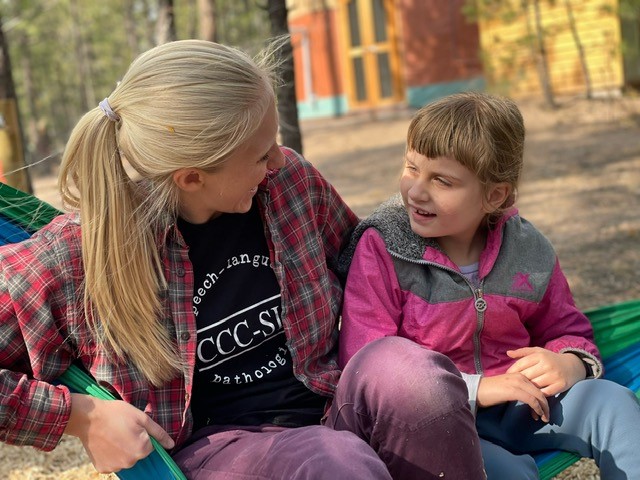
“Thank you for this dream school. These are the happiest mornings for my son! AdventureMe is the best part of [Colorado] for us!” – AdventureMe Parent
At the Therapeutic Forest School, children who require additional support develop important communication skills alongside their peers. Teachers build upon common early childhood activities and integrate occupational and speech therapy activities for all children in their program. This approach provides young children with opportunities to further develop their motor, social-emotional, and speech skills. It also creates an inclusive learning environment and increases empathy toward children with learning differences.
“I have absolutely loved working at AdventureMe as a nature-based occupational therapist. The outdoors provides the perfect environment to meet, motivate and challenge a child’s sensory, motor, and emotional regulation skills. The best part has been seeing each child’s happiness and wonder grow in nature and while playing with their friends.” – Regan Krimm, Occupational Therapist
Learn more about AdventureMe’s approach and programming online.
keyTakeaways
Children who spend time learning outside are more active and communicate better.
Early Childhood Health Outdoors (ECHO) helps providers create engaging outdoor learning spaces.
AdventureMe Therapeutic Forest School partners with specialists to support children with learning differences.
FOOTNOTES
[1] Mann J, Gray T, Truong S, Brymer E, Passy R, Ho S, Sahlberg P, Ward K, Bentsen P, Curry C and Cowper R (2022) Getting Out of the Classroom and Into Nature: A Systematic Review of Nature-Specific Outdoor Learning on School Children’s Learning and Development. Front. Public Health 10:877058. doi: 10.3389/fpubh.2022.877058.

